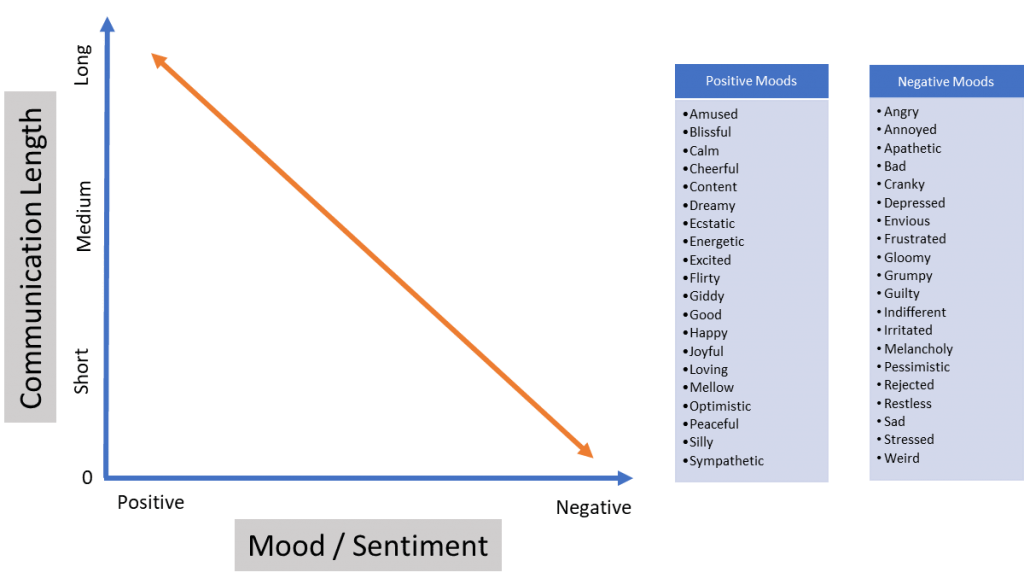Communicators are primarily hired to communicate; in the orthodox sense we were hired to write.
One of the major criteria’s for being a part of the communications team has been the command over your written language… In most MNC’s its English. And most of us are proud of the “dot the ‘T’s and Cross the ‘I’s” … oh sorry, it’s the other way around- nevertheless you get the point. But do you think this will matter in the age of limited text communication?
In today’s fast paced world, the patience level for reading has gone down. Any guesses why? (hint: it’s got nothing to do with millennials). It’s the pace of work and the easy access to information. Primarily the age-old rule applies even today – “Your priority”.
Food for thought, what will communicators do if there are no emails to write?
Your life does not move at a pace that you choose, but does on the environment you live in. And if you are in an Urban/Sub-urban setup, working in a MNC, you would have experienced that the only time you are can get for the much needed ‘balance’ is the time you are travelling between your home and office (Me Time). So, what are the ways that we as communicators can use to convey the message with impact? Is the answer keeping our communication Short, Interesting and Informative, to grab our audience’s attention?
Let me ask you, when was the last time you spoke to anyone in the shortest possible way? In our personal lives our length of communication is directly proportional to our mood / sentiment/ emotions.
 The above hypothesis is based on my observations and the basic idea is that, how we communicate the right sentiment in lesser words whenever we are in a negative mood V/s when we are happy. Imagine you just won a contract, v/s you did not do well in a project. Our communication style changes, in the prior incident one tends to be share more information, talk about our idea’s thoughts, etc… however in the latter, we tend to cut short our communication however the sentiment is transferred with the same or a higher impact.
The above hypothesis is based on my observations and the basic idea is that, how we communicate the right sentiment in lesser words whenever we are in a negative mood V/s when we are happy. Imagine you just won a contract, v/s you did not do well in a project. Our communication style changes, in the prior incident one tends to be share more information, talk about our idea’s thoughts, etc… however in the latter, we tend to cut short our communication however the sentiment is transferred with the same or a higher impact.
Basically, in a negative situation we use more alternatives than just speech- eg: you get more action oriented, more expressive etc… which tends to reduce the no of words.
The real question, how can we use this to benefit our corporate world? In my view, that is a tough ask. As the corporate world does not run on sentiments or does it? Well we are humans and we are influenced by sentiments, and the very basis of our communication is – what will the person think after reading it.
So here are some practises that I used, to make communication more engaging.
- Be selective, everything does not have to go on an email
- Events/ Townhalls/ Huddles / Team meeting / Conferences / grapevines etc… are all channels of communication, use them to your advantage.
- Use the power of visualisation, it makes the communication attractive.
- Go Mobile, the world has moved on, but corporates are still stuck with emails and computers, use internal messaging platforms as an alternative to emails and become mobile friendly.
- Identify your formal and informal platforms – and Use all of them.
- Make information available real time, That itself will reduce your need for any interpretation (sending emails)
- With email being the most common of platforms, while drafting, start with the shortest line, and then keep building up to what is required to be kept in the email. If you do have a lot of details and unavoidable, split your email and add a link where employees, if interested, can get more details.
The views and opinions published here belong to the author and do not necessarily reflect the views and opinions of the publisher.



Be the first to comment on "Keep it Short, Create an Impact"